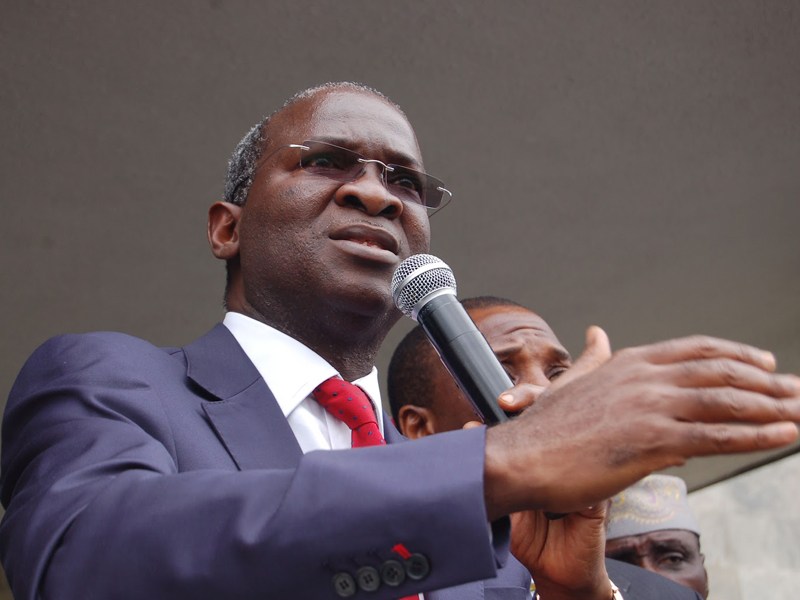- FG to Stop Payment of Shortfalls to Gencos
The Federal Government on Tuesday ordered power generation companies to go, find customers and sell their power directly to the identified customers instead of waiting for electricity distributors to sell the power or for payments from the government for the shortfalls in their (Gencos) revenues.
According to the government, plans are on the way for it to ultimately exit the monthly payments to Gencos to help cushion the revenue shortfalls on the books of the power generators as a result of the poor remittances from the power distributors.
The Permanent Secretary, Federal Ministry of Power, Works and Housing, Louis Edozien, who disclosed these on behalf of the Federal Government at a workshop on Eligible Customer Regulation in Abuja, also noted that the Electric Power Sector Reform Act never intended that government would continue to pay for shortfalls
In 2017, the Federal Government announced a commitment of N702bn through the Nigerian Bulk Electricity Trading company to guarantee the payment of electricity generated and supplied by power generation companies.
In his address to power sector operators at the workshop, Edozien said, “The purpose of this gathering is to give full effect to the (eligible customer) policy direction unveiled by the Minister of Power, Works and Housing, Babatunde Fashola, in 2017. With the policy, if you are a bulk consumer in the power sector and you are not satisfied with the services you are getting, you’ve been empowered under the Act to buy the power from an existing licencee and have it transmitted and delivered to you.
“It is a bit disheartening that though we are almost two years after that policy direction, not one fully licenced eligible customer is enjoying this regulation. So, I have messages for all the people here so that we can from today move forward much more expeditiously to effect what the minister intended almost two years ago.”
The permanent secretary added, “First is to the Nigerian Electricity Regulatory Commission; regulation is made for man, man is not made for regulation. Let’s take advantage of this regulation because a good regulation with no beneficiaries is a bad regulation.
“I have a message to Gencos, gone are the days where you could on your own or through your association or investors agitate about not being paid or not being able to sell your products. Since 2017, the Federal Government established a policy to pay you where you are not paid and that policy still subsists.
“But it is also not obtainable any longer for you to complain about not being able to sell your 2,000 megawatts. Go, find the customers who need it and sell it to them. That is what this regulation now authorises and empowers you to do. Don’t sit back and expect that government will perpetually be buying your power. No!”
Edozien argued that the Federal Government and the NBET were not the major consumers of electricity and as such, power generators must look for those who consume their product and sell to them.
“Government does not consume your power; the NBET is not the consumer of your power. Eligible customers are the consumers of your power, find them, (enter) contract with them. That’s the essence of this policy.
“The government, through the payment assurance programme, is paying the generation companies for shortfalls in payments through the NBET and clearly that is not what the Act intended for the industry today. And ultimately the government has to exit from this role,” he stated.
To power distribution companies, the permanent secretary challenged them to up their games in terms of services rendered.
“I have a message to Discos, the main reason you (Discos), TCN (Transmission Company of Nigeria), NERC, NBET, the FMPWH are in business is to satisfy customers. That’s the main reason of our existence. If your big customer is happy with you, there is no reason why he will want to take advantage of this service,” Edozien said.
The Chairman, NERC, James Momoh, revealed that about 44 interest groups were ready to take advantage of the eligible customer initiative.
Momoh said, “The eligible customer initiative now has over 44 interest groups that include those who have been licenced, those who have already signed on the purchase agreement, those who have already agreed to sign on the transmission use of service, the distribution use of service, those who are already on operation and the potential eligible customers. I think it is a good thing and we are ready to go.”

 Billionaire Watch3 weeks ago
Billionaire Watch3 weeks ago
 Startups4 weeks ago
Startups4 weeks ago
 News4 weeks ago
News4 weeks ago
 News4 weeks ago
News4 weeks ago
 Bitcoin4 weeks ago
Bitcoin4 weeks ago
 Naira4 weeks ago
Naira4 weeks ago
 Forex3 weeks ago
Forex3 weeks ago
 Treasury Bills4 weeks ago
Treasury Bills4 weeks ago

























